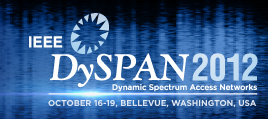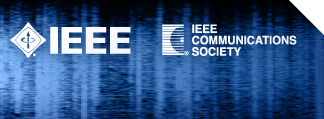PANELS
Panel 1: Standards Support for Dynamic Spectrum Access
Moderator: Lee Pucker, CEO, Wireless Innovation Forum
9:30 -- 10:30am Thursday, October 18, 2012 (Regency Ballroom)
The advancement of cognitive radio and dynamic spectrum access systems technologies is being driven by multiple different stakeholders including technology enthusiasts, research programs, industry consortia and regulatory bodies worldwide. These stakeholders are driving multiple, often disparate, standards developments activities. This panel will explore some of these activities to highlight differences and discern areas of commonality in advancing cognitive radio and dynamic spectrum access
across markets.
Panelists:
-
Hiroshi Harada, Director of Smart Wireless Laboratory, NICT and Chair of the IEEE DySPAN Standards Committee
-
Bruce Oberlies, Sr. Director of Advanced Technology, Motorola Solutions and Chair of the Wireless Innovation Forum
-
Peter Stanforth, CTO, Spectrum Bridge representing the IETF Protocol to Access White Space Database (PAWS) Project
Panel 2: Regulatory Options and Opportunities for Dynamic Spectrum Access
Moderator: Dale N. Hatfield, Univ. of Colorado at Boulder
1:30 -- 2:30pm Friday, October 19, 2012 (Regency Ballroom)
Regulatory changes are being discussed in many parts of the world that would affect the policy landscape for spectrum sharing, DSA and cognitive radio technologies. This panel brings together policy makers and regulatory experts to discuss the policy questions and regulatory initiatives being considered.
Panelists:
-
Marc Girouard (Director, Coordination and Fixed Service, Industry Canada)
-
Reza Karimi, Technical Policy Director, Ofcom (UK)
-
Julius Knapp (Chief, Office of Engineering and Technology, FCC, USA)
-
Mark Loney, Executive Manager, Australian Communications and Media Authority
-
Ruprecht Niepold, Adviser Radio Spectrum Policy, European Commission (slides)
 Hiroshi Harada received the Ph.D. degree from Osaka University, Osaka, Japan, in 1995. From 1995, he joined Communications Research Laboratory (CRL), Ministry of Posts and Telecommunications (MPT), Japan (currently National Institute of Information and Communications Technology (NICT)). From 1996 to 1997, he was a postdoctoral fellow of Delft University of Technology, The Netherlands. He is currently a research manager of ubiquitous mobile communications group of NICT. He has researched software defined radio and cognitive radio for more than ten years. He was the chair of Technical Committee of Software Radio, IEICE (The Institute of Electronics, Information and Communication Engineers) Communication Society, Japan, from May 2005 to May 2007 and he is currently a visiting professor of University of Electro-Communications, and a board of directors of Software Defined Radio (SDR) forum, U.S.A.. He received the Young Scientist Award from the Minister of Education, Culture Sports Science and Technology (MEXT), Japan and the achievement award of IEICE in 2006 on the topic of software defined radio. He is co-author of "Simulation and Software Radio for Mobile Communications" (Artech House, 2002).
Hiroshi Harada received the Ph.D. degree from Osaka University, Osaka, Japan, in 1995. From 1995, he joined Communications Research Laboratory (CRL), Ministry of Posts and Telecommunications (MPT), Japan (currently National Institute of Information and Communications Technology (NICT)). From 1996 to 1997, he was a postdoctoral fellow of Delft University of Technology, The Netherlands. He is currently a research manager of ubiquitous mobile communications group of NICT. He has researched software defined radio and cognitive radio for more than ten years. He was the chair of Technical Committee of Software Radio, IEICE (The Institute of Electronics, Information and Communication Engineers) Communication Society, Japan, from May 2005 to May 2007 and he is currently a visiting professor of University of Electro-Communications, and a board of directors of Software Defined Radio (SDR) forum, U.S.A.. He received the Young Scientist Award from the Minister of Education, Culture Sports Science and Technology (MEXT), Japan and the achievement award of IEICE in 2006 on the topic of software defined radio. He is co-author of "Simulation and Software Radio for Mobile Communications" (Artech House, 2002).
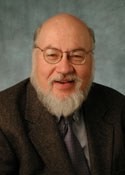 Dale N. Hatfield is currently a Senior Fellow at the Silicon Flatirons Center for Law, Technology, and Entrepreneurship and an Adjunct Professor in the Interdisciplinary Telecommunications Program – both at the University of Colorado at Boulder. Prior to joining the University of Colorado, Hatfield was the Chief of the Office of Engineering and Technology at the Federal Communications Commission (FCC) and, immediately before that, he was Chief Technologist at the Agency. He retired from the FCC and government service in December 2000. Before joining the FCC in December 1997, he was Chief Executive Officer of Hatfield Associates, Inc., a Boulder, Colorado based multidisciplinary telecommunications consulting firm. Before founding the consulting firm in 1982, Hatfield was Acting Assistant Secretary of Commerce for Communications and Information and Acting Administrator of the National Telecommunications and Information Administration (NTIA). Before moving to NTIA, Hatfield was Chief of the Office of Plans and Policy at the FCC. Hatfield has nearly fifty years of experience in telecommunications policy and regulation, spectrum management and related areas. Hatfield holds a BS in electrical engineering from Case Institute of Technology and an MS in Industrial Management from Purdue University. In May, 2008, Hatfield was awarded an Honorary Doctor of Science degree by the University of Colorado for, inter alia, his commitment to the development of interdisciplinary telecommunications studies. Hatfield is also the Executive Director of the Broadband Internet Technical Advisory Group (BITAG) and is currently serving on the FCC’s Technology Advisory Council (TAC) and on the Commerce Department’s Spectrum Management Advisory Committee (CSMAC).
Dale N. Hatfield is currently a Senior Fellow at the Silicon Flatirons Center for Law, Technology, and Entrepreneurship and an Adjunct Professor in the Interdisciplinary Telecommunications Program – both at the University of Colorado at Boulder. Prior to joining the University of Colorado, Hatfield was the Chief of the Office of Engineering and Technology at the Federal Communications Commission (FCC) and, immediately before that, he was Chief Technologist at the Agency. He retired from the FCC and government service in December 2000. Before joining the FCC in December 1997, he was Chief Executive Officer of Hatfield Associates, Inc., a Boulder, Colorado based multidisciplinary telecommunications consulting firm. Before founding the consulting firm in 1982, Hatfield was Acting Assistant Secretary of Commerce for Communications and Information and Acting Administrator of the National Telecommunications and Information Administration (NTIA). Before moving to NTIA, Hatfield was Chief of the Office of Plans and Policy at the FCC. Hatfield has nearly fifty years of experience in telecommunications policy and regulation, spectrum management and related areas. Hatfield holds a BS in electrical engineering from Case Institute of Technology and an MS in Industrial Management from Purdue University. In May, 2008, Hatfield was awarded an Honorary Doctor of Science degree by the University of Colorado for, inter alia, his commitment to the development of interdisciplinary telecommunications studies. Hatfield is also the Executive Director of the Broadband Internet Technical Advisory Group (BITAG) and is currently serving on the FCC’s Technology Advisory Council (TAC) and on the Commerce Department’s Spectrum Management Advisory Committee (CSMAC).
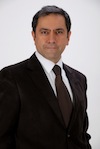 Reza Karimi is Technical Policy Director at the UK communications regulator, Ofcom, with responsibilities in a range of spectrum management initiatives, including the auction of the “4G/3G-expansion” spectrum for mobile communications at 2.6 GHz, the auction of the cleared TV bands (so-called “Digital Dividend” spectrum) for mobile communications at 800 MHz, and the application of geo-location databases for the use of UHF TV broadcasting bands by white-space devices. Reza is also visiting professor at Imperial College, London-UK. Previously, Reza was with Bell Laboratories at Lucent Technologies for eight years, where he researched in the field of advanced space-time coding, modulation and signal processing, medium access control, and radio resource management for cellular and WLAN systems. Prior to that, he was with the research group of Motorola GSM Products Division, active in the fields of software-definable radios, wideband digital radio transceivers, and advanced detection algorithms for GSM and 3G cellular systems. Reza received a first class honours degree in Electronic Engineering from the University of Surrey, UK. He also holds a MSc/DIC degree in Digital Communications, and a PhD in Adaptive Array Signal Processing, both from Imperial College, UK. Reza is the author of over fifty publications in international conferences and peer-reviewed journals, and is co-inventor in over thirty patents.
Reza Karimi is Technical Policy Director at the UK communications regulator, Ofcom, with responsibilities in a range of spectrum management initiatives, including the auction of the “4G/3G-expansion” spectrum for mobile communications at 2.6 GHz, the auction of the cleared TV bands (so-called “Digital Dividend” spectrum) for mobile communications at 800 MHz, and the application of geo-location databases for the use of UHF TV broadcasting bands by white-space devices. Reza is also visiting professor at Imperial College, London-UK. Previously, Reza was with Bell Laboratories at Lucent Technologies for eight years, where he researched in the field of advanced space-time coding, modulation and signal processing, medium access control, and radio resource management for cellular and WLAN systems. Prior to that, he was with the research group of Motorola GSM Products Division, active in the fields of software-definable radios, wideband digital radio transceivers, and advanced detection algorithms for GSM and 3G cellular systems. Reza received a first class honours degree in Electronic Engineering from the University of Surrey, UK. He also holds a MSc/DIC degree in Digital Communications, and a PhD in Adaptive Array Signal Processing, both from Imperial College, UK. Reza is the author of over fifty publications in international conferences and peer-reviewed journals, and is co-inventor in over thirty patents.
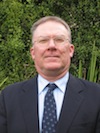 Mark Loney is the Executive Manager at the Operations Branch of the Communications Infrastructure Division for the Australian Communications & Media Authority. Mark grew up and was educated in Western Australia, completing a Bachelor of Arts in 1985 at the Western Australian Institute of Technology. Mark moved to Melbourne in 1986, joined the Department of Defence in 1988 and worked in Melbourne, Washington DC and Canberra over the next nine years. Since joining the Spectrum Management Agency in 1996, Mark has lead the development, implementation and operation of regulatory arrangements for broadcasting, radiocommunications and telecommunications services. Mark was Deputy Head of the Australian Delegation to the 2003 World Radiocommunication Conference in Geneva, played a key role in the establishment of Australian Communications and Media Authority in 2005 and has lead the Operations Branch since it was established in December 2009. Mark has been involved with the IEEE DySPAN conference series since DySPAN 2010 in Singapore and has written on spectrum management issues in info and Telecommunications Policy.
Mark Loney is the Executive Manager at the Operations Branch of the Communications Infrastructure Division for the Australian Communications & Media Authority. Mark grew up and was educated in Western Australia, completing a Bachelor of Arts in 1985 at the Western Australian Institute of Technology. Mark moved to Melbourne in 1986, joined the Department of Defence in 1988 and worked in Melbourne, Washington DC and Canberra over the next nine years. Since joining the Spectrum Management Agency in 1996, Mark has lead the development, implementation and operation of regulatory arrangements for broadcasting, radiocommunications and telecommunications services. Mark was Deputy Head of the Australian Delegation to the 2003 World Radiocommunication Conference in Geneva, played a key role in the establishment of Australian Communications and Media Authority in 2005 and has lead the Operations Branch since it was established in December 2009. Mark has been involved with the IEEE DySPAN conference series since DySPAN 2010 in Singapore and has written on spectrum management issues in info and Telecommunications Policy.
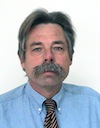 Ruprecht Niepold is an adviser on radio spectrum policy at the Directorate General for Communication Networks, Content & Technology (DG CONNECT) of the European Commission. He holds a Degree in Electrical Engineering from the Technical University of Karlsruhe and a PhD from the University of Stuttgart. From 1977 onwards he worked at the Fraunhofer Gesellschaft (Germany) in applied research for industry in the field of industrial automation before joining the European Commission in 1989 where he became responsible for relations with Japan and South East Asia in the field of telecommunications policy. As of 1997 he led the unit dealing mobile and satellite communications regulatory aspects. Between 2003 and 2008 he headed the unit in charge of driving radio spectrum policy from an EU perspective. Since May 2008 he advises the Director General of DG INFSO on radio spectrum policy issues.
Ruprecht Niepold is an adviser on radio spectrum policy at the Directorate General for Communication Networks, Content & Technology (DG CONNECT) of the European Commission. He holds a Degree in Electrical Engineering from the Technical University of Karlsruhe and a PhD from the University of Stuttgart. From 1977 onwards he worked at the Fraunhofer Gesellschaft (Germany) in applied research for industry in the field of industrial automation before joining the European Commission in 1989 where he became responsible for relations with Japan and South East Asia in the field of telecommunications policy. As of 1997 he led the unit dealing mobile and satellite communications regulatory aspects. Between 2003 and 2008 he headed the unit in charge of driving radio spectrum policy from an EU perspective. Since May 2008 he advises the Director General of DG INFSO on radio spectrum policy issues.
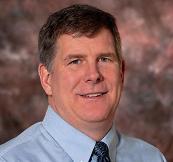 Bruce Oberlies is a Sr. Director of Advanced Technology in the CTO Office of Motorola Solutions. Since joining Motorola in 1982, Bruce has worked in product development leadership roles including the development of the first digital APCO P25 portable and mobile radios, and on the architecture definition and technology validation of three generations of Motorola LMR product platforms. His current role focuses on technology strategy and planning which encompasses early technology identification through technology validation for end to end wireless solutions encompassing interoperability, broadband and software defined and cognitive radio systems. He has been a board member of the Wireless Innovation Forum (previously Software Defined Radio Forum) since 2004. He has served in a variety of positions on the Board including ITU Region 2 representative and Chair of the Regulatory Committee. He is currently the Chair of the Wireless Innovation Forum. Bruce received a Bachelor of Science in Electrical Engineering (BSEE) degree at Rose-Hulman Institute of Technology and a Master of Science in Electrical Engineering (MSEE) from the University of Texas, Arlington.
Bruce Oberlies is a Sr. Director of Advanced Technology in the CTO Office of Motorola Solutions. Since joining Motorola in 1982, Bruce has worked in product development leadership roles including the development of the first digital APCO P25 portable and mobile radios, and on the architecture definition and technology validation of three generations of Motorola LMR product platforms. His current role focuses on technology strategy and planning which encompasses early technology identification through technology validation for end to end wireless solutions encompassing interoperability, broadband and software defined and cognitive radio systems. He has been a board member of the Wireless Innovation Forum (previously Software Defined Radio Forum) since 2004. He has served in a variety of positions on the Board including ITU Region 2 representative and Chair of the Regulatory Committee. He is currently the Chair of the Wireless Innovation Forum. Bruce received a Bachelor of Science in Electrical Engineering (BSEE) degree at Rose-Hulman Institute of Technology and a Master of Science in Electrical Engineering (MSEE) from the University of Texas, Arlington.
 Lee Pucker is the Chief Executive Officer of The Wireless Innovation Forum (SDR Forum Version 2.0), a non-profit "mutual benefit corporation" dedicated to driving the future of radio communications and systems worldwide. Prior to joining the Forum, Lee spent 25 years in the development, management, marketing and production of embedded signal processing and advanced wireless systems in organizations that include Spectrum Signal Processing, ITT Industries, and Computer Sciences Corporation. Lee is the named inventor on multiple patents, holds a Bachelor of Science degree in Electrical Engineering from the University of Illinois, a Master of Science Degree from The Johns Hopkins University, is Pragmatic Marketing Certified and a Certified Association Executive.
Lee Pucker is the Chief Executive Officer of The Wireless Innovation Forum (SDR Forum Version 2.0), a non-profit "mutual benefit corporation" dedicated to driving the future of radio communications and systems worldwide. Prior to joining the Forum, Lee spent 25 years in the development, management, marketing and production of embedded signal processing and advanced wireless systems in organizations that include Spectrum Signal Processing, ITT Industries, and Computer Sciences Corporation. Lee is the named inventor on multiple patents, holds a Bachelor of Science degree in Electrical Engineering from the University of Illinois, a Master of Science Degree from The Johns Hopkins University, is Pragmatic Marketing Certified and a Certified Association Executive.
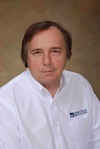 Peter Stanforth has a BSc (honors) in Computer Science from the University of Teesside. Mr Stanforth has a track record of creating companies to exploit innovative technologies in voice and data communications, ranging from cellular roaming, softswitching, ad hoc networking, and cognitive networking. Currently Mr Stanforth is CTO of Spectrum Bridge Inc., a company he cofounded in 2007 to develop ways to identify allocate and manage wireless spectrum for these technologies to operate in. The technology that SBI created has become the basis for a number of spectrum sharing platforms including TV White Space. Mr Stanforth holds over 25 patents in wireless communications and data networking.
Peter Stanforth has a BSc (honors) in Computer Science from the University of Teesside. Mr Stanforth has a track record of creating companies to exploit innovative technologies in voice and data communications, ranging from cellular roaming, softswitching, ad hoc networking, and cognitive networking. Currently Mr Stanforth is CTO of Spectrum Bridge Inc., a company he cofounded in 2007 to develop ways to identify allocate and manage wireless spectrum for these technologies to operate in. The technology that SBI created has become the basis for a number of spectrum sharing platforms including TV White Space. Mr Stanforth holds over 25 patents in wireless communications and data networking.
